Annual Report 2021 2022

Who We Are
Inclusion Canada is a national federation of 13 provincialterritorial associations and over 300 local associations working to advance the full inclusion and human rights of people with an intellectual disability and their families.
We believe in a Canada where everyone belongs.
Everyone should have the same access to opportunities to lead a regular, fulfilled life: grow up at home with your family; be included in school with friends and peers; immerse in a hobby or sport; have a career; travel; make friends; find a soulmate; have a home of your own; and contribute to your community. These are the common building blocks of life for most people in Canada, and the dreams and aspirations of people with an intellectual disability are no different.
Inclusion only happens when the lives of children and adults with an intellectual disability unfold no differently – immersed together with their peers without a disability in the same pathways and experience of life common to us all.
We know a serious challenge people with an intellectual disability often face are the stereotypes and negative perceptions by others in response to unique and different ways of learning and communicating.
We are changing this mindset.
We are at the forefront of a national movement of people who believe in an inclusive Canada, one in which people with an intellectual disability and their families are equally valued and fully included in every aspect of community life. We are a grassroots family-based association with representation from across Canada, working in collaboration with our federation members and other national partners and disability organizations who share our vision of a Canada where everyone belongs.
We are strengthening families by helping them create a vision for an inclusive life for their family member with an intellectual disability and then supporting them to make that dream a reality. We are transforming communities by inspiring and motivating community leadership and encouraging them to adopt inclusive practices. We are defending rights by promoting public policies and legislation that further advances inclusion.
By enabling inclusive lives for people with an intellectual disability we are building a Canada where everyone has the opportunity to thrive and prosper. This benefits us all. We invite you to join us.
2 Annual Report 2021–2022 3 inclusioncanada.ca
We Work 5
Communities
Systems
Who We Are 3 Message from the President & Executive Vice-President 4 How
Transforming
&
6 Access to Healthcare 6
a Movement for Inclusion 24 Financial Summary 25 Our Board of Directors 27 Our National Team 28 Our Year in Numbers 29 Join the Movement for Inclusion 30
Inclusive Education 8 Legal Capacity & Access to Justice 10 Inclusive & Affordable Housing 14 Income Security 16 Employment 18 Advancing Human Rights 20 Federation Strengthening 22 Building
Message from the President & Executive Vice-President
Desmond Tutu said that “Hope is being able to see that there is light despite all the darkness.” At Inclusion Canada, we have been and continue to be surrounded by many ominous, dark issues: the constant state of poverty for people with intellectual disabilities in Canada, a 75%-80% unemployment rate for those same people, substandard access to quality healthcare, inequitable access to justice, limited access to inclusive education and life-long learning opportunities, recovering from the devastating effects of a global pandemic.
Yet, in the face of this darkness we are hopeful. Our hopefulness is evidenced in the many, many actions Inclusion Canada takes to change that dark reality into promising futures for people with intellectual disabilities and their families. Hope requires action. Those actions are outlined in the following pages and demonstrate a steadfast commitment to our vision of a Canada where everyone belongs.
But beyond the progress on our strategic priorities, this past year we began in earnest our work on Family Leadership Development and Movement Building in cooperation with our federation. We know that to see the social change we desire we need a groundswell of people in Canada to join us in building better more inclusive communities, inclusive provinces and territories and an inclusive Canada. We garner hope from the thousands of individuals, their families, friends and allies who are part of our nationwide federation efforts. It is through those connections we gain strength and conviction.
As we go forward, our hope will continue to fuel our action. From the results articulated in the following report we know progress is happening and a better Canada is possible.
How We Work
Social change requires a movement.
In strengthening our federation, building a movement for inclusion, and transforming communities and systems, our strategic approach works to build a more inclusive Canada – one in which people with an intellectual disability and their families
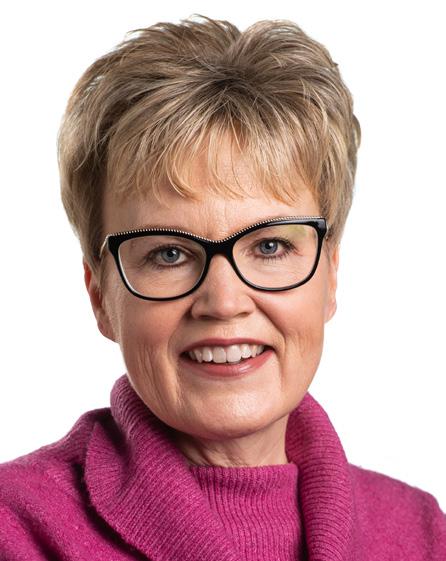

are equally valued and fully included in every aspect of community life. Through collaborative leadership and shared efforts, Inclusion Canada’s national federation has local-to-global impact in advancing our vision for inclusion. Read our 2021-2024 Strategic Plan online.

Strategic Framework

4 Annual Report 2021–2022 5 inclusioncanada.ca
Federation Strengthening Sustainability Knowledge Sharing Leadership Development Building A Movement For Inclusion Grassroots Engagement Intersectional Collaboration Commmunicating for Social Change Transforming Communities & Systems Access to Healthcare Income Security Inclusive Education Legal Capacity Inclusive & Affordable Housing Employment Access to Justice Advancing Human Rights
Krista Carr Executive Vice-President Federation Strengthening
Robin Building A Movement For Inclusion
Acton President Transforming Communities & Systems
Transforming Communities & Systems
Access to Healthcare
We’re working to create a Canada where people with an intellectual disability have access to quality healthcare, including mental health services, on an equal basis with others. Ableism, the belief that it is “normal” to not have a disability and that “normal” is preferred, is prevalent in Canada’s healthcare systems.
This was the first full year that people with disabilities who are not terminally ill could die with medical assistance. People with disabilities died because they didn’t have adequate pain relief, social supports, or were living in poverty and without adequate housing. Meanwhile, the COVID pandemic continued to be a serious risk. COVID precautions were lifted, regardless of the negative impact this had on people with disabilities’ safety in the community.
This year we:
• Hosted a national Access to Healthcare roundtable for our provincial and territorial members. The top priorities we heard were: working proactively to make the healthcare system more equitable, and making mental health care accessible to people with intellectual disabilities
• Raised awareness about the impact of Canada’s amended medical assistance in dying legislation on people with disabilities. We: advocated for better monitoring warned the government about the risks of expanding an already-discriminatory law worked on a constitutional challenge asked for a hearing at the Inter American Commission on Human Rights co-hosted a side session at the 15th session of the Conference of States Parties to the Convention on the Rights of Persons with Disabilities (COSP15)
• Began a national project exploring how the Public Health Agency of Canada can better communicate important health information to people with intellectual disabilities and their families. This project will continue until March 2023 and is a partnership with The Centre for Addiction and Mental Health (CAMH), People First of Canada, the British Columbia Aboriginal Network on Disability Society (BCANDS), and Surrey Place.
• Launched the campaign This is Ableism, in partnership with Allstate Insurance Company of Canada. The online public awareness campaign highlights how discrimination impacts people with disabilities in their everyday lives.

Over 240 people from 12 countries including Japan, Mexico, and New Zealand attended the COSP15 side session “Canary in a Coalmine: The Expansion of Medical Assistance in Dying / Euthanasia in Canada”.
This session, co-hosted with Inclusion International and ARCH Disability Law Centre, was one of the most attended sessions in the history of the Conference of States Parties to the CRPD at the United Nations.
“Our government dismissed and dismisses our concerns, and people with disabilities are dying. The least we can do is warn you. Don’t let your countries model their laws after Canada. It’s a glaring violation of the Convention on the Rights of Persons with Disabilities.”
– Krista Carr, COSP15 side session
6 Annual Report 2021–2022 7 inclusioncanada.ca
Inclusive Education
Inclusive Education Canada (IEC) is a national initiative of Inclusion Canada working to achieve full inclusion of children and adults with an intellectual disability in education settings, from early childhood learning through to post-secondary education. IEC brings together a network of professional associates who share a commitment to quality education and inclusion. The network shares its expertise with families, parent groups, teachers, school districts, and ministries of education.
Fewer than 50% of children with an intellectual disability in Canada are in fully inclusive school settings. Students are excluded from educational field trips, school dances, gym class, and other learning opportunities. Families struggle to find inclusive daycares and afterschool programs. Graduates face barriers to accessing funding for college or university. We’re working to change that.
This year we:
• Produced 20 episodes as part of the “Let’s Chat about Inclusive Education” series. This ongoing webcast series brings informed and diverse perspectives on the challenges, the progress, and the issues related to inclusive education in Canada.
• Hosted a live Question & Answer session with Inclusion International and Inclusive Futures (UK) on inclusive education.
• Developed and coordinated 4 national Working Groups to address the issues and challenges impacting successful inclusion in schools. Participants include IEC Associates and people with lived experience.

• Collaborated with the Canadian Council of Montessori Administrations by: participating in the Montessori educators conference delivering a 3-session professional learning course on inclusion for school leaders, in collaboration with Brock University establishing an agreement for an ongoing partnership
• Participated in 5 national and 6 international conferences and seminars. This included events in New Zealand, Spain, the United Kingdom, Colombia, Argentina, and a 3-nations group in Africa.
• Welcomed 4 new members to our national Network of Inclusive Education Associates. Our associates work collaboratively to advance knowledge and support inclusive education initiatives in communities across Canada.
“It is so important to support the teachers who are trying to implement inclusive education practices in their classrooms. Teachers believe that they can do it, but many of them just need some support, ideas or coaching on how to use the tools and ideas that they have to maximize their time so that they can provide all of their learners with the best environment in the classroom.”
– Tiffany Gallagher, Professor, Brock University, Episode 20 “Let’s Chat About Inclusive Education”
Inclusion Canada hosted 5 federation roundtables to share information and develop strategies to advance inclusive education from coast to coast to coast.
8 Annual Report 2021–2022 9 inclusioncanada.ca
This year we:
• Finished a 2-year project where we: Developed a planning guide to assist people with disabilities and their supporters to access and advance supports for decision making
Produced a research paper on the duty to accommodate and legal capacity Engaged several Human Rights Commissions from across Canada
• Updated Inclusion Canada’s Position on Legal Capacity with the support of volunteers from across our federation.
• Hosted an Access to Justice roundtable for our provincial and territorial members. We identified the greatest barriers to access to justice for people with intellectual disabilities and their supporters and established next steps for future work in this area.
“We’ve come up against many people [in the justice system] who have lack of training, of understanding, they have an ableist mentality. There is very little compassion for the kinds of supports that my son would require to understand and express language. And I know if we experience it, that many other families in our province and probably across the country face the same issue.”
– Parent participant, virtual Access to Justice roundtable
Legal Capacity & Access to Justice
People with an intellectual disability have the same rights as everyone else. They have the right to safety. They have the right to make decisions about their lives. We work to make sure these legal rights are recognized and respected, and that people are treated fairly under the law.

Legal systems in Canada create many barriers for people with an intellectual disability. They prevent many people from signing contracts for everyday things like opening a bank account or getting a cell phone. They use complicated language that makes it hard to understand and access important information. Complex systems and lack of supports prevent people from reporting crimes or having their stories heard and believed.
7 interactive discussions on decision-making rights and independence were held this year with people with disabilities, Deaf people, and their families and supporters from 11 provinces and territories. Feedback from these sessions is helping Inclusion Canada identify what is needed across the country to prevent and remove barriers to exercising legal capacity rights.
10 Annual Report 2021–2022 11 inclusioncanada.ca
“Inclusion Canada could not have been a better place to have done my internship. From the beginning to the end of my work term, I worked with a team full of leaders building towards a Canada that is truly inclusive. The team members were responsive, knowledgeable, and passionate about change. I have grown my skills further in communications and discovered new tools, tips, and skills that I am able to bring with me moving forward in my career and into real world applications. I am proud to have worked with Inclusion Canada and believe that anyone who joins will be in great hands.”
– Daniel Nguyen - Communications Intern

12 Annual Report 2021–2022 13 inclusioncanada.ca
Inclusive & Affordable Housing
We’re creating communities where people with an intellectual disability have the supports they need to make their own choices about where and with whom they live, and control their own lives. We do this by working to transform housing and supports systems from congregate and segregate settings to inclusive options in community.
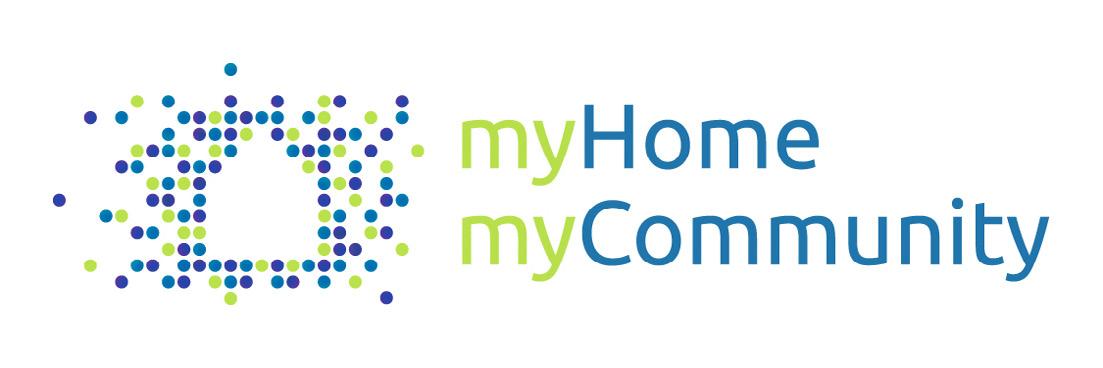

Many people with an intellectual disability in Canada continue to live in institutions because they can’t access the support they need to live in community. Others spend years on waiting lists for affordable housing. It doesn’t have to be this way.
This year we:
• Published a handbook for housing developers and funders offering guidance and specific actions to build more inclusive housing.
• Hosted an accessible webinar explaining Inclusion Canada’s position on housing and how to get involved in making change.
• Partnered with People First of Canada to support the 7-part documentary podcast series Invisible Institutions. The podcast explores the past and present of institutions for people with intellectual and developmental disabilities in Canada. Producer and host Megan Linton interviews survivors, community activists, and experts as they work together to expose the exploitation, isolation, resistance and survival of people with disabilities.
• Co-hosted a press conference calling on the government of Nova Scotia to release disability advocate Vicky Levack from long-term care. The press conference was co-led by the Disability Justice Network of Ontario (DJNO) and the Disability Rights Coalition of Nova Scotia and raised awareness about the right to live independently and in community.
“What a home means to me is choices. To come and go as you please. I’ve been told that our house is place of love and it’s a home of choice. A place where you can put the key in the door, and you have full control of your life.”
– Shane, Self-advocate, My Home My Community participant
“I was given a choice that was not really a choice. I have undergone more harm in this building than I ever would have in the community.”
– Vicky Levack, Self-advocate, February 9, 2022 Press Conference
14 Annual Report 2021–2022 15 inclusioncanada.ca
Income Security
We’re working to create a Canada where people with an intellectual disability and their families have the income and resources they need to secure a good quality of life and fully participate in their communities.
The Government of Canada’s commitment to a Disability Inclusion Action Plan, including a new Canada Disability Benefit, could be an important step in making this a reality. Inclusion Canada has partnered with more than 20 national disability organizations to influence how the Disability Inclusion Action Plan is implemented across Canada. We are also leading the financial security component of this work.
This year we:
• Updated our position statement on income security for families. We also released plain English and plain French versions of this document.
• Published two infographics about income security highlighting the policy changes we want to see. There’s an infographic for individuals and an infographic for families
• Hosted an accessible webinar explaining Inclusion Canada’s positions on income security and how to get involved in making change.
• Led national consultations about the proposed Canada Disability Benefit. We spoke to diverse people with disabilities about: their lived experiences the challenges and limitations of current social and income support programs

their ideas for the design and implementation of the proposed benefit
We used this information to prepare a ‘What We Heard Report’ that will be shared with the Government of Canada to help shape the development of the Canada Disability Benefit.
“Goals and wants aren’t in the picture here. Right now, people [with disabilities] can’t even cover their basic needs. People should be able to have joy in their lives – go to a concert, educate themselves. More money would mean people wouldn’t have to choose between eating and paying their bills.”
– Participant, Canada Disability Benefit focus group
Over 260 people with lived experience and 39 policy experts from across the country shared their views about the design and implementation of the proposed Canada Disability Benefit during our national focus groups and interviews.
16 Annual Report 2021–2022 17 inclusioncanada.ca
Employment
Ready Willing and Able (RWA) is an initiative of Inclusion Canada, the Autism Alliance of Canada (formerly known as CASDA) and our member organizations. Funded by the Government of Canada, RWA strives to increase the labour force participation of people with an intellectual disability or autism to a rate reflective of the general population.
RWA focuses on the employer – showing them that job seekers with an intellectual disability or autism make excellent employees and can fill existing jobs. As businesses recover from the impacts of the COVID-19 pandemic, people with disabilities are meeting the increasing demand for reliable, dedicated workers.

This year we:
• Continued delivering RWA Phase 2, facilitating 555 outcomes (499 hires, 47 post-secondary, and 9 self-employment), for people with an intellectual disability or Autism. We added five new National Employer Partners: Amazon, DHL, Sephora, Loblaw, and Worldline – bringing the total national employer partnerships to seventeen. These partnerships mean that RWA has a presence and impact in more than 200 communities across Canada.
• Received approval to extend RWA Phase 2 until October 2022.
• Received additional funding to: extend RWA into 10 additional primary communities. This brings the total number of primary communities to 30. undertake additional activities related to career advancement for people with an intellectual disability or autism, and establish relationships with 10 indigenous communities, focusing on youth employment.
• Secured an investment of $20M for RWA in Federal Budget 2022. This investment will see RWA Phase 3 begin in November 2022 and continue until at least March 2025.
• Hosted an accessible webinar explaining Inclusion Canada’s position on employment and how to get involved in making change.
– Employment Agency Representative, British Columbia
As of June 2022, RWA has reached out to more than 16,800 employers, engaged approximately 8,400 employers, and generated over 3,490 employment outcomes for people with an intellectual disability or autism.
18 Annual Report 2021–2022 19 inclusioncanada.ca
“RWA provides a needed service to employers, individuals, and agencies that provide supported employment services. A professionally branded, single voice for promoting inclusive employment for people with an intellectual disability or autism is an effective business strategy that should continue and expand in order to move the dial.”
Advancing Human Rights
Inclusion Canada works to amplify the voices and experiences of people with an intellectual disability, their families, and allies in the development of national and international legislation to advance human rights.

The United Nations Convention on the Rights of Persons with Disabilities (CRPD) is an international treaty protecting and promoting the rights of people with disabilities. Canada ratified the Convention in 2010, making it legally binding. In 2019 the Accessible Canada Act (ACA) came into effect with the goal of creating a barrier-free Canada. It aims to proactively identify, remove, and prevent barriers to accessibility in federally regulated priority areas.
This year we:
• Amplified the voices of people with an intellectual disability and their families by participating in 8 federal consultations about Accessible Canada Act (ACA) standards and regulations setting. These consultations included: Federal Use of Plain Language Accessible Residential Housing Employment
Guidance on the Accessible Canada Regulations: Alternate Formats and Accessible Canada Regulations: Simple, Clear and Concise Language
Communications – Telephone, Internet, and Television Access ATM Machines
Federal Service Bilingualism
• Supported the House of Commons and the Senate of Canada in the development of their Accessibility Plans. We continue to influence the implementation of the ACA by participating on the Accessible Standards Canada Technical Committee on Employment and the Technical Committee on Plain Language.
• Worked with IRIS and the Canadian Council on Rehabilitation and Work (CCRW) to advance Accessible Canada Act implementation by: developing guidelines for accessibility and inclusion for employers in the financial sector
developing a platform to match federal entities working on accessibility planning with people with lived experience
• Attended the 15th session of the Conference of States Parties to the Convention on the Rights of Persons with Disabilities - the annual gathering of country delegations and civil society to review and discuss the implementation of the CRPD.
• Campaigned nationally and internationally for the election of Dr. Laverne Jacobs to the UN Committee on the Rights of Persons with Disabilities. Dr. Jacobs was successfully elected and is the first Canadian in history on the Committee.
• Made formal remarks and joint submissions on General Comment no. 8 on CRPD Article 27 (Work and Employment) in collaboration with People First of Canada and the Canadian Institute for Inclusion and Citizenship. We worked internationally to coordinate and complement the submissions of Inclusion International and national and regional member organizations from our international federation.
“The Accessible Canada Act has the potential to support people with an intellectual disability to have equal opportunities to access employment, transportation, information and communication technology, and more. Inclusion Canada continues to work with the Government of Canada in ensuring the voices and needs of people with an intellectual disability are included in shaping the implementation of the legislation.”
– Krista Carr, Executive VicePresident of Inclusion Canada
20 Annual Report 2021–2022 21 inclusioncanada.ca
Federation Strengthening
A strong Inclusion Canada federation is the foundation of advancing our vision and achieving our mission. Through sustainability planning, leadership development, strategic partnerships, and national-provincialterritorial collaborations, we’re sharing knowledge and building capacity to have local-to-global impact in advancing inclusion.
This year we:
• Co-hosted the 12th Annual Federal Policy Forum for Inclusion: Right at Home Advancing Article 19 - The Right to Live in Community in collaboration with People First of Canada and the Office for Disability Issues. This year’s virtual forum focused on housing related issues and featured the lived experience of people with an intellectual disability and families, as well as research and policy expertise from government and community.
• Met in person with our 13 provincial-territorial member organizations for the first time since the COVID pandemic began. In May 2022 we discussed priority issues including: Access to justice for people with intellectual disabilities
More than 300 policy makers, elected officials, families, selfadvocates, and allies attended the 2021 Policy Forum, logging on from communities from coast to coast to coast.
Engaging people with lived experience in federal consultations
The federal Employment Strategy and our national employment initiative Ready, Willing & Able
Federation knowledge sharing and capacity building
Family leadership development, and
Building a movement for inclusion in Canada
• Monitored our performance and impact as an organization. We measure what matters using tools like our:
Key Performance Indicator Scorecard
Annual Operational Plan
Annual Strategic Plan Evaluation
Annual employee, constituent, and member surveys
We are committed to learning continuously, reflecting critically, and adjusting accordingly.

“This forum gave me hope for my child.”
–
Federal Policy Forum on Inclusion attendee, post-event survey
“Thank you for your hard work and time in organizing this event. It was so inspiring! I feel a deep appreciation for all who have moved the right to be included in community forward. It’s overwhelming to see how much more must be done, but it is so reassuring to know all of these capable, caring, ambitious people are at the front lines - thank you so much.”
– Federal Policy Forum on Inclusion attendee, post-event survey
22 Annual Report 2021–2022 23 inclusioncanada.ca
Building a Movement for Inclusion
People with an intellectual disability, their families, and allies are the heart of the movement for inclusion. We’re working to foster and attract new leaders and allies, connect people with lived experience from across Canada to the movement, and increase public awareness of the work of Inclusion Canada and the value of inclusion for all.
This year we:
• Established a National Training Team and designed a 5-part Family Leadership Development Series. The curriculum provides families and self-advocates with knowledge and skills to help them create a vision for an inclusive life, make their vision a reality, and strengthen their leadership within our movement.
Financial Summary
“Advocacy, having discussions about inclusion, and having inclusive-life examples and resources on the path forward are essential for moving toward life goals – and that’s what Inclusion Canada does. They say that it takes a village to raise a child. It takes the support and inclusion of the nation to give children and adults with intellectual disabilities a chance on a meaningful and normal life.”
– Parent feedback, 2022 Inclusion Canada Constituent Survey
• Launched our first Leadership series in New Brunswick, with sessions taking place in four areas of the province. In partnership with Inclusion New Brunswick, we brought together 25 families and selfadvocates from across NB to pilot the Family Leadership curriculum. We hope to offer this series in communities across the country in the coming years.
• Held an in-person discussion on Movement Building with our Board of Directors and federation members. Participants discussed what movement building is and how we can continue to promote and build a strong social movement for inclusion in Canada.
• Announced a national gathering of our movement in 2025 in Whistler, British Columbia. The national gathering will be held in conjunction with Inclusion BC’s 70th anniversary celebration and will bring together families, self-advocates, and allies to share, learn, and re-energize.
Where the Money Came From
Federal Grants: $9,605,408
Non-Federal Grants: $97,604
Membership Dues: $230,834
Donations: $248,057
Fees from Technical Support: $19,800
Total: $10,201,703
How We Put the Money to Work
Transforming Communities & Systems: 83%
Building a Movement for Inclusion: 8%
Federation Strengthening: 4%
Administration: 5%
24 Annual Report 2021–2022 25 inclusioncanada.ca
Thank you










A special thank you to our incredible donors and Inclusion Champions who are committed to helping us build a fully inclusive Canada for all.

We would also like to thank our 2021-2022 Corporate Sponsors for your generous contributions:










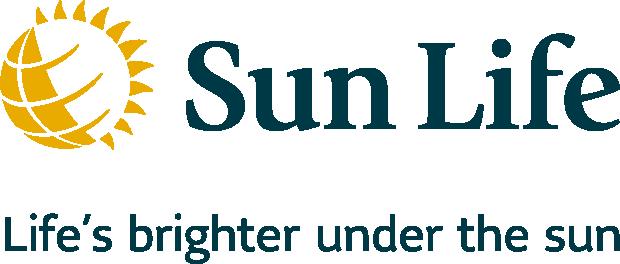
Our Board of Directors
Executive Officers
Robin Acton, President, Alberta
Moira Wilson, Vice-President, New Brunswick
Barb MacIntyre, Treasurer, Alberta
Joy Bacon, Past President, New Brunswick
Appointed Officer
Krista Carr, Executive Vice-President

Distinguished Associates
Audrey Cole, Ontario
Diane Richler, Ontario
Lorraine Silliphant, New Brunswick


Directors

Monica Braat, Director-Alberta

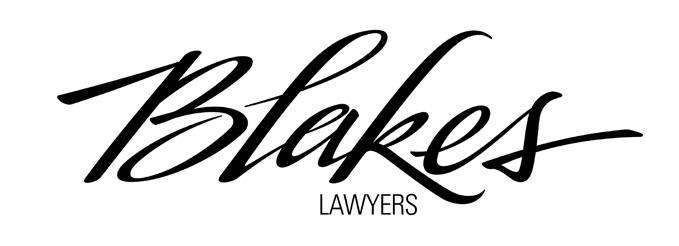

Bluesette Campbell, Director-Saskatchewan
Jackie Carpenter, Director-at-Large
Dianne Cormier Northrup, Director-at-Large

Carmel French, Director-Nova Scotia
Sheryl Giesbrecht, Director-Manitoba
Dennis Gill, Director-Newfoundland and Labrador
Janet Leslie, Director-at-Large

Daniel Martens, Director-Prince Edward Island
Noah Papatsie, Director-Nunavut
Ben Russo, Director-Northwest Territories
Carlos Sosa, Director-at-Large
Marcel St. Jean, Director-Ontario
Roxane Tarjan, Director-New Brunswick

Jill Teeple, Director-at-Large
Fiona Whittington-Walsh, Director-British Columbia
John Wright, Director-Yukon
Throughout 2021-2022 we continued to benefit from our partnership with LIFT Impact Partners. LIFT’s Inclusion with Impact initiative has provided Inclusion Canada with hands-on support and technical expertise through their social impact team and network of pro-bono partners. This year we worked strategically together in the areas of Social Impact Measurement and Board Governance.
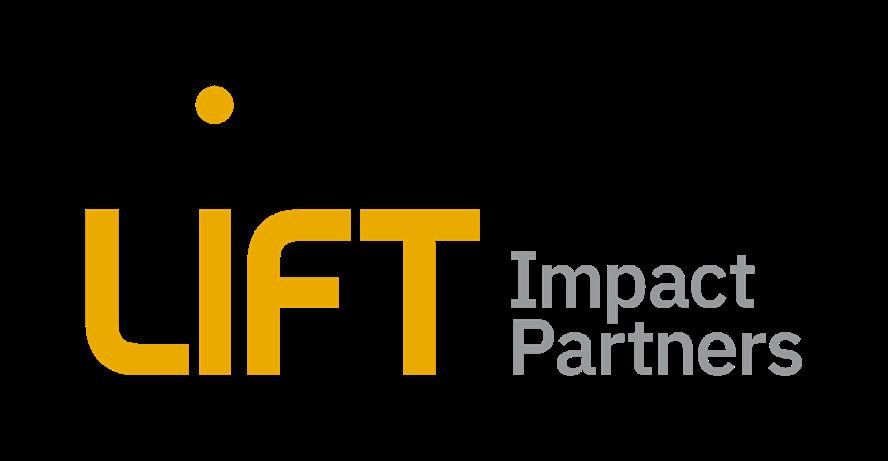
26 Annual Report 2021–2022 27
inclusioncanada.ca
Our National Team
Krista Carr
Executive Vice President
Bill McGregor


National Program Manager, Operations, Ready, Willing & Able

Brian Foster

National Program Manager, Policy & Resource Development, Ready, Willing & Able
Charlotte Pyke Project Officer
Gordon Porter Director, Inclusive Education Canada


Harper Gunn Disability Justice Summer Intern

Mike Silvester National Project Coordinator, Ready Willing & Able

Natalia Hicks Director, Community Justice & Health Equity
Jason Carr Executive Director, Community Engagement & Development
Jeff Ferguson Executive Director, Knowledge Mobilization & Transformation
Daniel Nguyen Communications Summer Intern
Divya Sabapathy Fund Development Summer Intern

Don Gallant
National Director, Ready Willing & Able
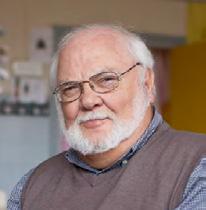

Frank Fagan
Assistant National Director, Ready Willing & Able
Judith Butler Senior Officer, Board Relations and Senior Management Support

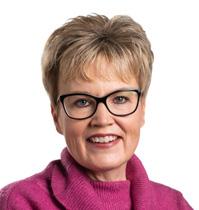
Rachel Mills Senior Policy Analyst
Sinthea Chowdhury National Project Coordinator, Ready Willing & Able


Sue Talmey Director, Finance and Administration


Karen Gilbert Executive Assistant

Kurt Goddard Executive Director, Legal & Public Affairs

Tara Levandier Executive Director, Operations & Social Impact
Our Year in Numbers
93% of Inclusion Canada constituents are satisfied with our national work


Our Federal Political Platform Analysis was a big hit! Over 4,440 people commented on or shared this resource on social media
74% of Inclusion Canada constituents say our advocacy and policy reform efforts with the federal government is the most valued piece of work we do
125 – information resources, including webinars, fact sheets, infographics and reports, produced by Inclusion Canada this year
100% of Inclusion Canada’s 13 provincial-territorial members are satisfied with our national work and the support we provide to the federation 1,056,123 –people reached by Inclusion Canada’s public awareness and communications work promoting inclusion
$120,000 raised in one hour at our annual Inspiring Inclusion Luncheon
87 – local, regional, and national organizations Inclusion Canada partnered with this year to advance inclusion for people with an intellectual disability and their families
1,700
– views of our Let’s Chat about Inclusive Education web series
13 – national projects underway to transform communities and systems for over 755,000 people with an intellectual disability in Canada
Teisha Ugwuegbula Policy Analyst
Marc Muschler Senior Communications Officer
Trina Steed
National Program Manager, Operations, Ready, Willing & Able
–
Parent feedback, 2022 Inclusion Canada Constituent Survey
28 Annual Report 2021–2022 29 inclusioncanada.ca
“Inclusion Canada has taught me the importance of having a vision for my child to be fully included in society and his right to experience a good (or better) quality of life. Inclusion Canada’s national priorities very much align with the life of my son: education, employment, housing, and justice.”
Join the Movement for Inclusion
Inclusion Canada is the only national organization that works solely on behalf of people with an intellectual disability and their families. We help strengthen families, defend rights, and transform communities into places where everyone belongs. Join us and support the inclusion movement in Canada!
Become an ambassador
Inclusion Canada hosts free, 45-minute virtual Inspiring Inclusion presentations to raise awareness of how we work towards building an inclusive Canada. These presentations include powerful stories from people who have been supported through our organization. Attendees can join from the comfort of their home or office. Do you want to help us spread the word in your community? Become an ambassador and host a virtual presentation with 10 of your friends, family members, or colleagues.
Donate today
There are many ways to contribute through donating – whether it be a one-time or recurring donation, or a donation in honour or memory of someone.
Become an inclusion champion
Are you looking to make a longer-term donation? Join our Inclusion Champion Society by making a 5-year pledge to support our work.
inclusioncanada.ca
Leave a legacy
Including us in your estate planning can be a powerful way to leave a legacy and ensure that Inclusion Canada can continue to impact the lives of people with intellectual disabilities and families for generations to come.
Corporate partnership
We welcome your organization’s support and have many opportunities to partner – reach out to discuss hosting an office Lunch and Learn, sponsoring an event or getting involved in one of our projects.
To discuss the impact you want to make in the movement for inclusion or a great idea you have, please connect with us at giving@inclusioncanada.ca
Ready, Willing & Able
Learn more about how our work transforms communities and help us make connections to local employers for our national employment initiative, Ready, Willing & Able
30 Annual Report 2021–2022 31

Inclusion Canada c/o WeWork 1 University Avenue, 3rd Floor Toronto, Ontario M5J 2P1 inclusioncanada.ca inform@inclusioncanada.ca @InclusionCanadaFB @InclusionCA


































































